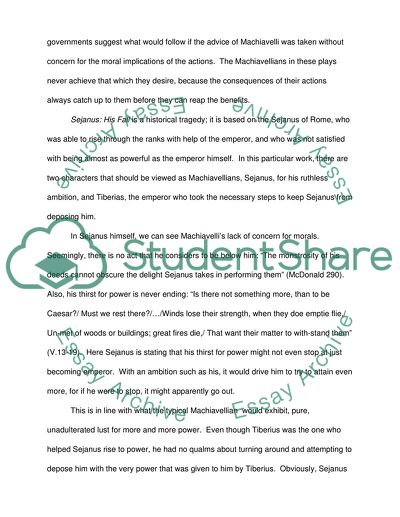Cite this document
(“The Machiavellian in the White Devil Essay Example | Topics and Well Written Essays - 2750 words”, n.d.)
The Machiavellian in the White Devil Essay Example | Topics and Well Written Essays - 2750 words. Retrieved from https://studentshare.org/literature/1546457-discuss-the-representation-of-machiavellianism-and-the-machiavel-in-the-following-jacobean-and-caroline-tragedy-john-websters-the-white-devil-and-ben-jons
The Machiavellian in the White Devil Essay Example | Topics and Well Written Essays - 2750 words. Retrieved from https://studentshare.org/literature/1546457-discuss-the-representation-of-machiavellianism-and-the-machiavel-in-the-following-jacobean-and-caroline-tragedy-john-websters-the-white-devil-and-ben-jons
(The Machiavellian in the White Devil Essay Example | Topics and Well Written Essays - 2750 Words)
The Machiavellian in the White Devil Essay Example | Topics and Well Written Essays - 2750 Words. https://studentshare.org/literature/1546457-discuss-the-representation-of-machiavellianism-and-the-machiavel-in-the-following-jacobean-and-caroline-tragedy-john-websters-the-white-devil-and-ben-jons.
The Machiavellian in the White Devil Essay Example | Topics and Well Written Essays - 2750 Words. https://studentshare.org/literature/1546457-discuss-the-representation-of-machiavellianism-and-the-machiavel-in-the-following-jacobean-and-caroline-tragedy-john-websters-the-white-devil-and-ben-jons.
“The Machiavellian in the White Devil Essay Example | Topics and Well Written Essays - 2750 Words”, n.d. https://studentshare.org/literature/1546457-discuss-the-representation-of-machiavellianism-and-the-machiavel-in-the-following-jacobean-and-caroline-tragedy-john-websters-the-white-devil-and-ben-jons.


